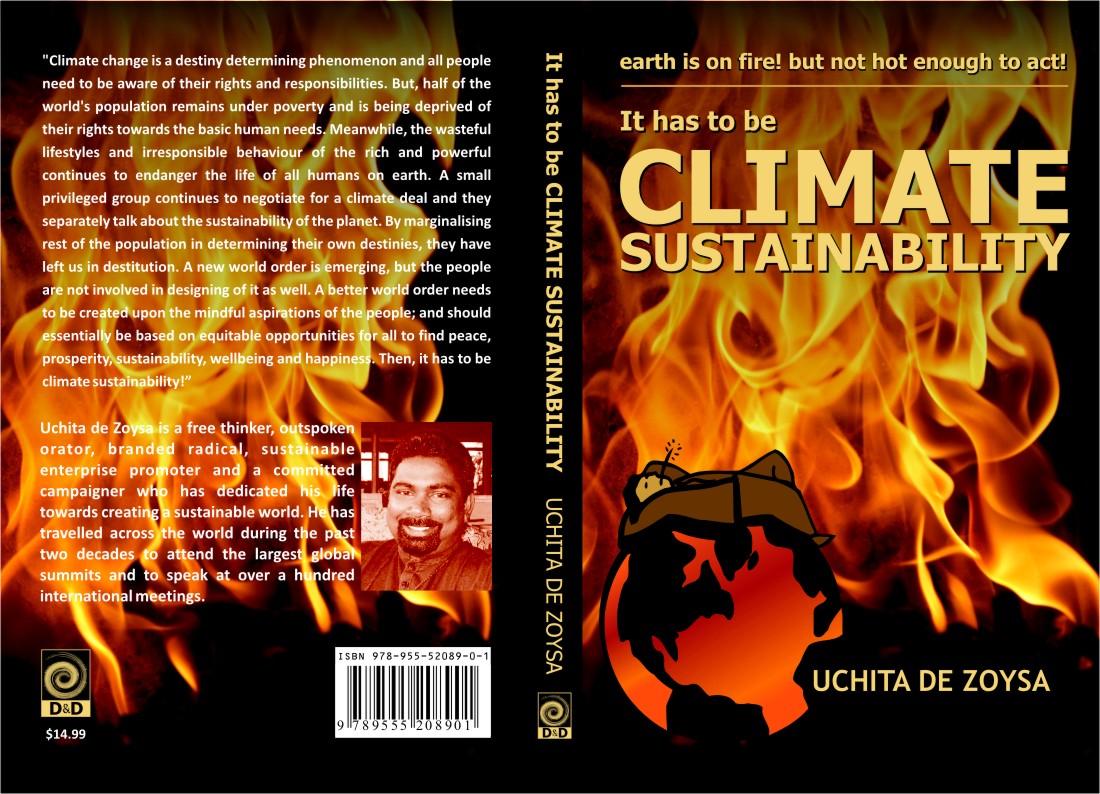CHAPTER 05: Negotiating with an Empty Stomach
Chapter five the dialogue engages the reader in the problems of half of the humanity. Hunger is rising in parts of the world while the Millennium Development Goals had promised to eradicate global poverty in half by 2015. Poverty is a result of a hypocritical global governance system. If people are trapped in poverty and cannot find adequate food and other needs to fulfil their basic livelihood requirements, then the success of facing the climate challenge will be beyond human ability. Also, this would increase the frequency of wars on earth and humanity may finally perish in a combination of climate and poverty related violence.(from pg 95) ..... "One young Canadian undergraduate student, that I met recently, wrote on her ‘Facebook’ page that “loneliness is the worst of poverties in the world”. Loneliness which is more common in the rich countries may be a psychological entry point to find alignment with poverty for her. To be born and living in a country like Canada where quality of life is supposed to be in the highest world rankings, imagining poverty may be the closest way to relate to it. If anyone has ever missed a meal, they may have the ability to imagine what hunger could be. ......"
(from pg 99) ..... "In poverty ridden communities where access to food or income to purchase food is hard to come by, waste dumps are their greatest consolation. Not only do they seek for any form of edible leftovers, but in some African communities people have found a livelihood as hunters of rats living in the urban waste mountains. These rats are caught and placed in small cages and fed with more waste. The rat grows up fat and heavy, trapped tightly in the small cage without any possibility of moving for months. Once the rat is grown into the size of the cage, they are slaughtered and sold in the market place. In communities where a meal is a struggle, a rat on a plate is a luxury. ...."
(from pg 101)..... "Cheap labour is a primary reason why production for the rich societies takes place in poor countries. The cost of a car, a shirt or a banana remains affordable to the rich consumers, simply because cheap labour is available in poor countries. An eight hour job pays a man in a developed country tens or even hundred times more than an identical job done by a man in a poor country. How did the world come to value human labour so differently? ..... "
(From pg 102) ..... "Poverty is a result of a hypocritical global governance system. This is a system that has promoted unsustainable production regimes and over-consuming societies to grow further. This is a system that rewards exploitation by a few and obstructs access to resources by the majority. This is a system which continues to debate on who is responsible for climate change and who should pay for mitigation and adaptation. This is a system where the unconcerned and non-compassionate continue to decide the destinies of humanity. ......."
